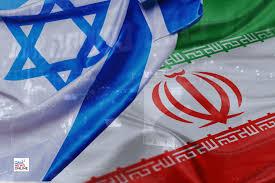Following weeks of high-intensity, technologically advanced warfare between Israel and Iran, Prof. Adewumi Falode, a scholar of History and International Studies at Lagos State University (LASU), has stated that a pause in hostilities does not necessarily signal the end of the conflict.
Falode made this assertion during a symposium organised by the LASU Centre for Peace and Security Studies, themed, ‘The Israeli-Iranian War, 2025: Issues and Implications’ held at the university which saw other experts in International Relations also contributing to the discussions.
His assertion is coming just a few days after U.S. President Donald Trump announced via social media on Monday evening that Israel and Iran had agreed to a ceasefire, bringing a temporary halt to nearly two weeks of escalating airstrikes by both nations.
Leading the discourse, Falode, who is also the Director of the Centre, explained that the concept of victory varies between states.
He emphasised that what Iran may perceive as a victory could differ significantly from Israel’s definition of the same.
According to him, “They say they are interested in stopping Iran from building a nuclear weapon. Why? If Iran acquires a nuclear bomb and America already has one, America stands to lose more compared to Iran.
“That’s why it’s called mutual assured destruction. The U.S. has more to protect. That’s the point. Once a state possesses nuclear capability, it gains strategic security.
“Why didn’t they do to North Korea what they are doing to Iran? Because they can’t. If North Korea is attacked and manages to launch even one missile, the consequences would be catastrophic. Having a nuclear weapon is not the same as having a delivery system. If you build a bomb, like North Korea did, but don’t have a reliable delivery system, it’s useless. And if you have missiles, like Iran does, but no nuclear warheads, that’s also useless.”
Falode further stated, “That’s why Iran is collaborating with North Korea. Iran helped North Korea develop its delivery systems, and now North Korea is sharing nuclear technology with Iran. So, if Iran develops a nuclear bomb, they already have missiles capable of delivering it.”
Also speaking at the event, Prof. Abolade Adeniji from the Department of History and International Studies questioned Iran’s apparent lack of open support from allies during the conflict.


